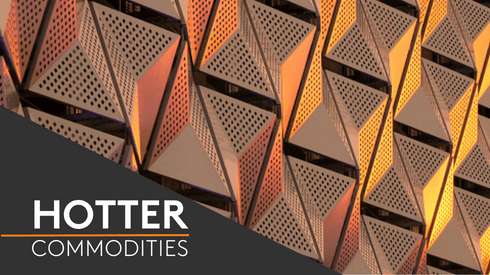In a normal year for the global aluminium market, negotiations for annual supply of the light metal begin in mid-September and conclude between late October and November.
But with uncertainty about the global economy due to Covid-19 in 2021 lingering, annual negotiations are taking longer than expected this time.
“It’s really blurry currently,” de Goys told Fastmarkets in an interview on Wednesday October 21. “Normally at the end of October, beginning of November, we should’ve signed 90% of the volumes for 2021 and that’s absolutely not the case.”
In some cases, they are not concluding at all, with consumers hesitating to commit to large tonnage over a long period of time and opting to buy metal as needed in the coming year instead.
“Spot activity will be larger compared to previous years because we need to adapt to the reality of the global activity, so we need to be more agile compared to the past,” he said.
High-carbon discount
Also unlike recent years is the increase in interest in Europe for low-carbon aluminium, de Goys noted. Alvance has two assets that have Aluminium Stewardship Initiative (ASI) certifications: its nuclear- and hydro-powered Dunkerque Smelter and its Duffel rolling mill in Belgium.
The increasing interest for low-carbon aluminium stems from the implementation of the European Union’s Green Deal Covid-19 economic recovery package which provides incentives for using low-carbon materials in various industrial sectors.
“We are seeing the Green Deal as something that’s really a big, big, big impact on the recovery. It has different outcomes depending on the sector,” de Goys said.
“On the automotive sector for example we can see an increasing interest in the electrical vehicles, so that means we need to adapt and adapt our production to that new market. On the building and construction sector of course very large amounts of subsidies will be distributed to Europe in order to improve insulation and energy usage,” he added.
Consumers are increasingly expecting suppliers to show low-carbon credentials already, which could one day lead to high-carbon emitting aluminium supply trading at a discount to lower-carbon alternatives.
“Low-carbon ASI certification, for example, is becoming more and more mandatory,” de Goys said. “We may a see a discount for aluminium which is not low-carbon, which will probably change a bit the way the market is subject.”
There is also the possibility European market participants will be forced by policy to use low-carbon aluminium, depending on future legislation.
“In the end, it will of course depend on the final users, customers’ reaction. Are they forced by law to buy low-carbon products or will they do that by choice? That will depend on the choice by the EU,” de Goys said.
Fastmarkets is looking to expand its price discovery in sustainably produced metals, launching a consultation on potential pricing mechanisms for low-carbon aluminium products.






